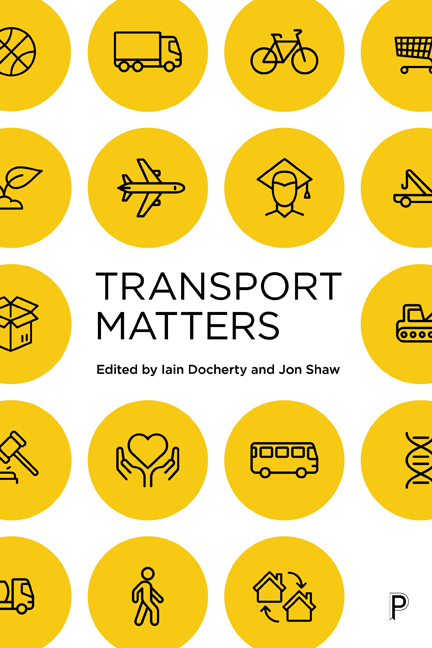1 - Transport Matters
Published online by Cambridge University Press: 03 March 2021
Summary
Introduction
Perhaps some of those watching the gathering storm on a stretch of Britain's southern coastline on 4 February 2014 had the fleeting thought that local railway workers might be busy that night. On a good day, the views out to sea from the railway line that runs between the cliffs and the beach from Teignmouth to Dawlish Warren are truly magnificent; the English Channel's sparkling blue set against red sandstone cliffs and stacks that mark the train's arrival at the ‘English Riviera’. Other than London and its surroundings, the South West attracts more inbound visitors than any other part of England (Visit Britain 2013), and the railway still identifies itself as emblematic of the region. But by the following morning, when the storm that did indeed keep railway workers up had blown through, it was clear how much the whole of the region identified with its railway. As the tracks of the Great Western mainline just up from Dawlish station dangled in thin air (Figure 13.3), it was also clear how much local politicians and business owners were worried that people outside of the region were identifying with its railway. With the rail corridor through Devon into Cornwall severed for the foreseeable future, the potential for the counties to be perceived as ‘closed for business’ was headline news (BBC 2015). Although the predictable instant rash of doom-laden ‘studies’ appeared – our colleague Greg Marsden (2014: unpaginated) wrote an article for The Conversation pointing out that ‘[w]ithin hours of the news [of the line closure], calculations adorned the backs of hundreds of envelopes, producing seven, eight or even nine figure sums of economic turmoil’ – the key point was that even if they weren't sure precisely what the impact would be, people very quickly realised that transport matters to themselves and their communities.
This may not seem especially surprising given that individuals’ livelihoods and holiday plans were apparently under threat, but the sudden, panicked concern in fact highlights how little attention the public generally pays to transport, despite its importance to their daily lives or the functioning of the country as a whole.
- Type
- Chapter
- Information
- Transport Matters , pp. 3 - 28Publisher: Bristol University PressPrint publication year: 2019



